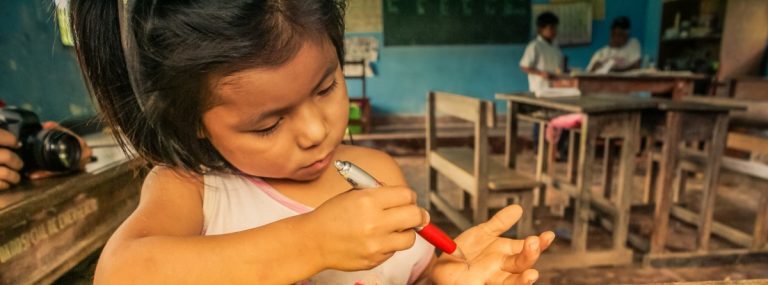
In the developed world, we take for granted our light switches to give us light as when we want it.
But globally, as many as 1.2 billion people do not have access to electricity, according to the International Energy Agency. This ‘energy poverty’ essentially cuts their community off from meaningful development.
One area where this is of particular detriment is education – schools can’t run without universal electrification in their country and that’s where the ‘Lights to Learn’ (LTL) initiative by Organization of Ibero-American States for Education, Science and Culture (OEI) plans to step in.
LTL is a joint public-private sector effort to install photovoltaic solar systems to bring electricity to Latin American schools. More than 25,000 primary pupils, 1,197 teachers and 556 rural schools are expected to benefit from the initiative.
As one of the 15 finalists for this year’s World Innovation Summit for Education (WISE) Awards, LTL will be competing against 14 other projects that tackle a number of pressing education issues from access to books, coding and digital skills, to boosting maths, science and reading levels.
WISE CEO, Stavros N. Yiannouka said: “The 2017 WISE Awards finalist projects have built effective, tested solutions to global education challenges. Whether ensuring access to fundamental primary education or preparing young people for the 21st century workplace, each project is already transforming lives, and provides an inspirational model for other communities to adopt.”
“This is vital to our mission at WISE, dedicated to empowerment and collaboration.”
Six projects are in the running to receive a US$20,000 grant in addition to publicity and networking opportunities. The winners will be announced in September 2017 and celebrated at the 8th World Innovation Summit for Education this November.
Liked this? Then you’ll love these…
2 out of 3 in Africa and South Asia can escape poverty if they finish high school
Get into college, get out of poverty – Editor, The Oprah Magazine







